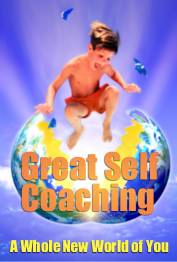I truly love coaching. So much so, that I've devoted the last 15 years of my life to it (The last 9 years have been about helping life coaches, business coaches, and executive coaches succeed via School of Coaching Mastery).
Why? Because truly great coaching melds optimism, personal growth, relationship skills, and helping people be their very best. Plus, it's fun, inspiring, and a great way to make a living, unless you are one of the unlucky souls who get snagged by the wrong advice, like the poor sap JP Sears portrays in the How to Be a Life Coach (Not) video, above.
JP is playing for laughs. But here's the sad part: What he says and does in this skin-crawling satire of a life coach, is remarkably close (even identical, in some cases) to advice given by hundreds of self-proclaimed expert "coaches". You'll recognize them by the yachts, sports cars, and private planes they like to pose in front of, or in the opposite extreme, the spiritual, heart-centered props and rhetoric they used to sell their Law of Attraction "abundance" programs. Yuk.
These coaches are fake. Most don't coach at all (even if they call what they do "coaching"), or they use coaching skills to manipulate their customers into buying more and more products and programs, instead of employing those skills to help their customers succeed. This violates basic ethical practices in professional coaching.
You see, if you succeed, you won't need to buy any more advice from them, and that's no good for their bottom lines.
Here's a Top Ten List of Bad Advice for Coaches. Beware...
- You can't make a living as a life coach. Oh really? Why then, has coaching been one of the fastest growing professions for the past two decades? The US Bureau of Labor Statistics says professional and business services, such as coaching, is one of the one of the fastest-growing sectors, right now. If anyone tells you that you can't make a living as a coach, ask yourself why they said that. Did it come from your sour-puss brother-in-law who pours negativity on every new idea? Maybe get a second opinion. Or does it come from a friend-of-a-friend who went broke trying to become a coach? Probably they took some of the following advice. Read on...
- Quit your job. If coaching is growing so fast, why not just quit your job and start coaching? Because, unless you are hired by a company, like Google, to coach their employees, you probably will be starting your own coaching business. And no business, no matter how successful it becomes, is profitable on Day One. And nobody is going to cut you a full-salary paycheck two weeks after hanging out your shingle. It takes time. Either keep your current job, or work part-time to cover your bills, while you build your awesome new business. Otherwise, terror over not having enough to cover the mortgage will make you desperate and that's when you'll become vulnerable to the following scams...
- Learn internet marketing. Internet marketing is a seductive hotbed of get-rich-quick schemes. Self-proclaimed million-dollar-coaches, seven-figure-coaches, wealth coaches, and gurus of every stripe will offer to teach you how to "Explode Your Profits!!!", "Live a Life of Abundance!", and more, with free webinars, cheap products, expensive workshops, and incredibly high-priced "coaching", "mentoring", or "personal advising" programs. Coaches who have been ensnared by these snake-oil salesmen have gone bankrupt, lost their homes, and more. The only people who get rich quick in this world, are the people selling the products and often even they are faking their own "success". Avoid their advice at all costs, especially if it includes...
- You must have a niche to succeed. I was lucky. I studied coaching with Thomas Leonard, the Founder of the Coaching Profession, who taught his students, flat out, that you don't need a niche to succeed with coaching. It's fine if you don't have one, especially when you start out. If you develop one over time, that's fine too, but don't sweat it. Why do "experts" keep saying all coaches must have niches? Because new coaches, by definition, don't have niches, and once they "discover" that not niching will prevent them from getting clients, they go into the same fear-fueled panic that plagues coaches without enough income - and then they are ripe for all the hype internet marketers throw at vulnerable new business owners - and they start buying workbooks, seminars, and "coaching programs" that will help them discover their niches. I just talked to a former student of mine, a smart, talented, accomplished coach; who says she spent the last year taking classes and doing exercises to find her niche. It was both expensive and time-consuming and none of it helped her get clients. She's feeling a bit bitter, just like coaches who follow this bad advice...
- Get a web site immediately. If you're a web developer, this is the advice you'll give every new business owner. But many businesses, including most coaching businesses, don't get clients via their websites. What? Nobody will take you seriously if you don't have a web site, you say? Tell that to the thousands of successful coaches who didn't get web sites until after they'd been coaching for two or three years (including me). In the meantime, use a directory listing or Facebook page, or LinkedIn profile as your web address. You'll save time and money and will have more flexibility in developing your web presence over time. Plus, a successful coaching site needs thousands of visitors and in order to get them, you will either need to become a search engine optimization (SEO) expert, or you'll have to hire one. Then again, you'll need a web site in order to do what internet marketers say you must do in order to make millions...
- Sell products. These can be information products, such as audio and video recordings, workbooks or eBooks, anything to build up multiple streams of income, because you can't make a living as a coach, right? I fell for this for about a year and made much less money than I had when I just coached one-to-one. If you enjoy creating products, that's good, but unless you have thousands of people on your email list, you'll hardly sell any of them. Not nearly as good a return on investment as coaching one-to-one, which according to the most recent ICF coaching survey, pays over $200 per hour. Avoid the "products" stream at least until you have a stable full practice and you'll never have to fool with this advice...
- Get a sales funnel. This is another tool that only works if you have a big email list (it took me years to build mine), or fantastic SEO. Big companies often do use sales funnels effectively, but if you're a new coach, it's unlikely that a funnel will do anything but waste your time and money. Good coaches make most of their income coaching their clients and may supplement that with other services, and perhaps later on, a few products. If you're a new coach, studiously avoid this one and definitely the next...
- Max out your credit card. Or raid your daughter's college fund. Take out a second mortgage. Or sell one of your cars. This is the kind of bad advice fake "coaches" give when a customer tells them they aren't succeeding and are too broke to buy a $15,000 - 40,000 Platinum Program to get the information they really, really need to succeed. Again, if you're getting desperate, you will be more susceptible to this underhanded sales scheme. In fact, economic behaviorists have discovered something they call the "sunk-cost fallacy", in which people who are losing money, will continue to spend in a desperate attempt to recoup what they've lost. You see this all the time in casinos. And it's one reason marketing funnels work. The more someone spends, but doesn't quite get what they need, the more likely they will keep spending on the same stuff. I thought I was too smart for this, until I caught myself doing it, once. I was feeling a little desperate at the time, which is one reason why the following advice is so terrible...
- Don't get coach training. There's an old coaching guard out there that never got training, because there was none when they started coaching. Coaching scammers and internet marketers point to those veteran coaches as proof that nobody needs coach training. Why would they do that? Because a good coach training program will give you confidence, teach you what works, and warn you about what to avoid. Not good for those who want to prey on you. By the way, the ICF has found that coaches with training become successful more quickly, make more money, and are less likely to get discouraged and quit the profession. Good training is a lot less expensive than losing your shirt. And that brings us to our final bit of terrible advice...
- Don't get coach certification. Again, some coaches will angrily fight the idea that they need any type of credential. I suspect the anger is a cover for insecurity and more than a little paranoia. Because, once you're certified by a reputable organization, that fear tends to vanish, and because you've got a stamp of approval from a trusted source, that says you've got the right stuff. Will your clients ask you about it? Some will; some won't. Why lose even one client, because you didn't bother to get certified? According to the ICF, 84% of actual coaching clients say, coach certification is an important consideration for them. In some parts of the world, that percentage is even higher.
So there you have the worst possible advice for new life, business, and executive coaches.
If you don't have the training and certification you need yet, the ICF can point you to where to get it. And you can also get it here:



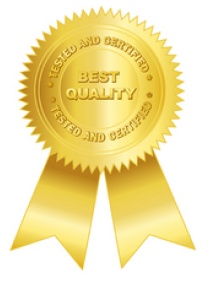





 In honor of the ICF's International Coaching Week, I'm sharing the Top Ten Lessons I learned from
In honor of the ICF's International Coaching Week, I'm sharing the Top Ten Lessons I learned from 
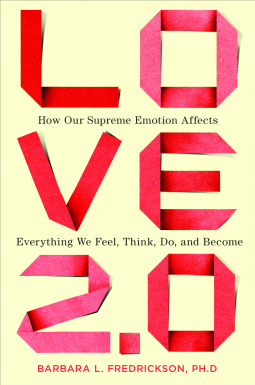


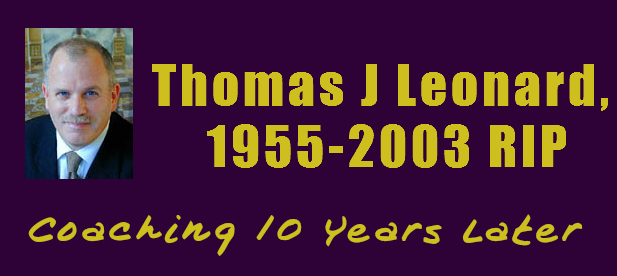

 (Okay, there was some speeding involved.)
(Okay, there was some speeding involved.)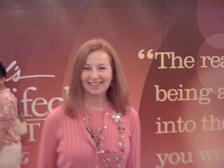

 You've probably heard that group coaching is a must-have for your coaching business, but you may never have thought about
You've probably heard that group coaching is a must-have for your coaching business, but you may never have thought about 
